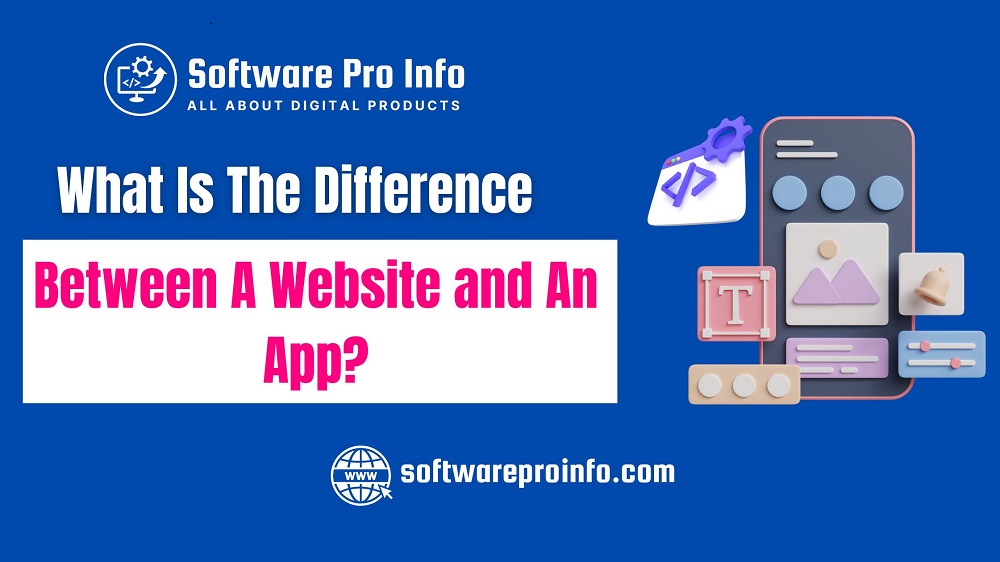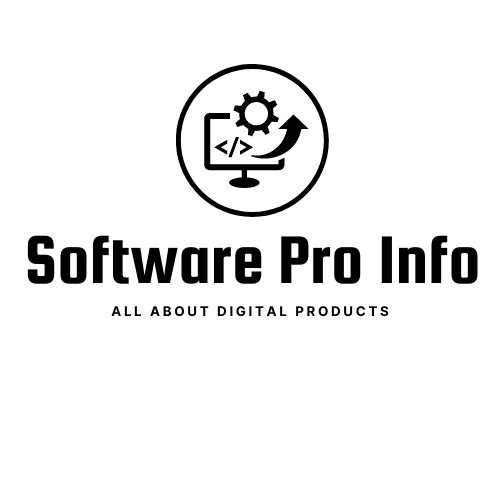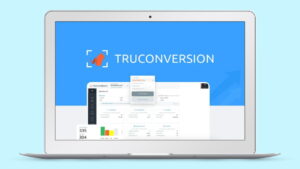When you’re deciding between creating a website or an app, it’s important to know how they differ and what each can offer. Websites and apps may seem similar, but they have distinct features and serve different purposes.
Well, you’re a business owner or just curious, this guide will help you understand the key differences and make the right choice. In the article we have shared details of What Is The Difference Between A Website and An App? Just let’s have a look below and share with others.
What Is The Difference Between a Website and an App?
Websites are accessed through web browsers and don’t require installation, making them accessible on any internet-connected device. They are generally cheaper and easier to develop and maintain.
Apps, on the other hand, are downloaded and installed on specific devices, providing a more interactive and smoother user experience by leveraging device features like cameras and GPS. Apps require more investment in development and maintenance and must be approved by app stores.

Websites reach a broader audience, while apps offer deeper user engagement. Choosing between the two depends on whether you prioritize wide accessibility and lower costs (website) or enhanced interactivity and user engagement (app).
So, from here, Understanding the difference between a website and an app is essential for making the right choice for your needs. Here’s a clear breakdown
Accessibility
One of the primary differences between a website and an app is how they are accessed. Websites are accessible through any web browser on any device with an internet connection.
They do not require installation and can be updated in real-time. On the other hand, apps need to be downloaded and installed on a specific device, which can take up storage space and require regular updates.
User Experience
Apps are designed to provide a more immersive and interactive experience. They can leverage device-specific features like cameras, GPS, and push notifications to enhance functionality and user engagement.
Websites, while responsive and adaptive, might not offer the same level of interactivity and often depend on the capabilities of the browser and internet connection.
Performance
When it comes to performance, apps generally have the upper hand. They can run more smoothly and efficiently because they are optimized for the device they are installed on.
Websites might suffer from slower loading times and depend heavily on the quality of the internet connection. However, advancements in web technologies, such as Progressive Web Apps (PWAs), are bridging this gap by offering app-like experiences within browsers.
Development and Maintenance
Developing a website typically requires less time and money compared to an app. Websites can be built using standardized web technologies and are easier to update and maintain.
Apps, however, often require separate development processes for different platforms (iOS, Android, etc.), leading to higher costs and more complex maintenance. Additionally, apps need to be approved by app stores, which can add to the development timeline.
Reach and Audience
Websites have a broader reach as they are accessible to anyone with an internet connection, regardless of the device or operating system.
This makes them ideal for businesses aiming to attract a global audience. Apps, while potentially more engaging, are limited to the users who choose to download and install them.
However, once installed, apps can foster deeper user engagement and loyalty through personalized experiences.
When to Choose a Website
A website is often the best choice if your primary goal is to provide information, establish an online presence, or reach a wide audience without significant investment in development and maintenance. Websites are particularly suitable for:
- Blogs and news portals
- E-commerce stores
- Corporate and portfolio sites
- Educational resources
When to Choose an App
An app might be the better option if you aim to deliver a highly interactive, personalized experience that leverages device-specific features. Apps are ideal for:
- Gaming platforms
- Social networks
- Health and fitness trackers
- Productivity tools
Know More: Key Differences Between Vertical and Horizontal SaaS
Difference Between App and Website Examples
Apps and websites differ in terms of accessibility, user experience, offline functionality, updates, and development.
Websites are universally accessible through browsers, while apps require installation on specific devices. Websites offer a consistent experience across devices, whereas apps provide more personalized and interactive features.
Offline access is generally available with apps but not with websites. Updates to websites are instantly available, while app updates need to be manually downloaded.
Websites are developed for universal access, while apps are often developed separately for different platforms.
| Aspect | Website | App |
| Accessibility | Accessible via web browsers on any device. | Requires installation from an app store. |
| Example | Amazon.com: Accessible from desktops, tablets, and smartphones. | Amazon Shopping App: Needs to be downloaded from the App Store or Google Play. |
| User Experience | Provides a consistent experience across devices. | Offers a personalized, interactive experience tailored to the device. |
| Example | BBC News: Adapts layout to fit different devices and browsers. | Instagram App: Uses device features like the camera and location services. |
| Offline Functionality | Generally requires an internet connection. | Often allows offline access to certain features. |
| Example | Wikipedia.org: Needs an online connection for content. | Spotify App: Allows listening to downloaded music without an internet connection. |
| Updates and Maintenance | Updates are made on the server and instantly visible. | Updates need to be downloaded and installed by users. |
| Example | The New York Times: Changes are immediately available to visitors. | Facebook App: Requires users to install updates from the App Store or Google Play. |
| Development | Developed once for universal browser access. | Often developed separately for different platforms (iOS, Android). |
| Example | Google.com: Accessible from any browser on various devices. | TikTok: Has distinct versions for iOS and Android devices. |
Is It Better to Build a Responsive Website or an App?
Choosing between building a responsive website or an app depends on several factors, including your goals, target audience, and available resources. Each option offers distinct advantages and considerations.
Choose a Responsive Website if: You need broad accessibility, a lower budget, and a platform that’s easy to maintain and update. Great for informational or content-focused services.
Choose an App if: You require specific features, offline functionality, or a highly interactive experience. Ideal for applications that need to leverage device capabilities and offer a personalized experience.
- Responsive Website: Best for broad accessibility, ease of maintenance, and providing content or services across all devices without needing a download.
- Example: Amazon.com – Accessible from any device with a web browser.
- App: Ideal for offering specialized features, enhanced user engagement, and offline access, leveraging device-specific capabilities.
- Example: Instagram – Utilizes device features for a richer, interactive experience.
Defining Websites and Apps
Websites are a collection of publicly accessible, interlinked web pages that share a single domain name. They are typically built using languages such as HTML, CSS, and JavaScript and are accessed via web browsers like Chrome, Firefox, or Safari. Websites are versatile and can host a wide range of content, from simple informational pages to complex e-commerce platforms.
Apps, or applications, are software programs designed to perform specific tasks. They are usually downloaded and installed on mobile devices or computers. Apps are built using various programming languages depending on the platform (iOS, Android, Windows, etc.) and are often available through app stores like Google Play or the Apple App Store.
What is a Website?
A website is a collection of interconnected web pages accessible via the internet using a web browser. Websites are generally built using HTML, CSS, and JavaScript. They can be static (fixed content) or dynamic (content that changes based on user interaction or other factors).
Examples of Websites:
- News Websites (e.g., BBC, CNN): These websites deliver news content and often have features such as articles, videos, and interactive elements.
- E-Commerce Sites (e.g., Amazon, eBay): Online stores that offer products for sale, allowing users to browse, select, and purchase items.
- Educational Platforms (e.g., Khan Academy, Coursera): Websites that offer courses, tutorials, and educational resources.
Key Characteristics of Websites:
- Accessed via Web Browsers: Users visit websites using browsers like Chrome, Firefox, or Safari.
- Responsive Design: Modern websites are often designed to be responsive, meaning they adapt to various screen sizes and devices.
- Content Updates: Websites can be updated in real-time, making it easy to push new content and features.
What is an App?
An application (app) is a software program designed to run on a specific platform or device, such as smartphones, tablets, or desktop computers. Apps are typically downloaded and installed from app stores (e.g., Google Play, Apple App Store) or accessed through a dedicated software client.
Examples of Apps:
- Social Media Apps (e.g., Instagram, Facebook): Apps that allow users to connect, share content, and interact with others.
- Productivity Apps (e.g., Microsoft Office, Evernote): Tools designed to help users manage tasks, create documents, and enhance productivity.
- Gaming Apps (e.g., Candy Crush, Fortnite): Apps specifically designed for entertainment and gaming.
Key Characteristics of Apps:
- Platform-Specific: Apps are often developed for specific operating systems (iOS, Android, Windows) and may require different versions for each.
- Offline Access: Many apps offer offline functionality, allowing users to access features or content without an internet connection.
- Native Features: Apps can leverage native device features such as GPS, camera, and sensors for a more integrated user experience.
Comparing Apps and Websites:
- User Experience:
- Apps: Provide a more personalized and streamlined experience. They can take advantage of device hardware and offer a more immersive user interface.
- Websites: Offer a universal experience accessible from any device with a web browser. Websites are generally easier to update and maintain.
- Development and Maintenance:
- Apps: Require development for each specific platform, which can be time-consuming and costly. Updates need to be pushed through app stores.
- Websites: Typically involve a single development effort that works across all devices. Changes can be made instantly without requiring user action.
- Access and Distribution:
- Apps: Distributed through app stores and require installation. Users need to download and periodically update apps.
- Websites: Accessible via URLs and don’t require installation. Users simply visit the site through a web browser.
- Cost:
- Apps: Generally more expensive to develop due to the need for separate versions and app store fees.
- Websites: Often less expensive to build and maintain, with costs primarily associated with hosting and development.
FAQs: What is The Difference Between a Website and an App?
What is the main difference between a website and an app?
The main difference lies in accessibility and installation. Websites are accessed through web browsers and don’t require installation, while apps need to be downloaded and installed on specific devices.
Which is more cost-effective to develop, a website or an app?
Websites are generally more cost-effective to develop and maintain. They use standardized web technologies and don’t need separate versions for different platforms.
How do apps enhance user experience compared to websites?
Apps offer a more interactive and immersive experience by utilizing device-specific features like cameras, GPS, and push notifications. They also provide smoother performance as they are optimized for the device.
Can websites offer the same functionality as apps?
Websites can offer many of the same functionalities as apps, especially with advancements like Progressive Web Apps (PWAs). However, apps can still provide a more integrated and seamless experience by leveraging device-specific capabilities.
When should I choose to develop a website over an app?
Choose a website if your goal is to provide information, establish an online presence, or reach a wide audience with minimal development and maintenance costs. Websites are ideal for blogs, news portals, e-commerce stores, corporate sites, and educational resources.
When is it better to develop an app instead of a website?
Develop an app if you need to deliver a highly interactive and personalized experience. Apps are ideal for gaming, social networks, fitness trackers, and productivity tools, where user engagement and device-specific features are crucial.
How does the reach of websites compare to apps?
Websites have a broader reach since they are accessible to anyone with an internet connection, regardless of the device or operating system. Apps, while providing deeper user engagement, are limited to users who download and install them.
Do apps need to be approved by app stores?
Yes, apps need to be approved by app stores (like Google Play or the Apple App Store), which can add time to the development process and require adherence to specific guidelines and standards.
What is the main difference between an app and a website?
Websites are accessed through browsers without needing installation, while apps are downloaded and installed on devices.
Is it better to use an app or the website?
It depends on your needs. Use a website for wider reach and easier access. Use an app for a more interactive and optimized user experience.
Is a mobile app the same as a website?
No, a mobile app is a software program installed on a device, while a website is accessed through a browser.
Is YouTube a website or an app?
YouTube is both a website and an app. It can be accessed through web browsers and has dedicated apps for mobile and other devices.
Final Talks
Both apps and websites have their own strengths and are suitable for different purposes. Websites are ideal for providing information and services that need to be accessible across various devices, while apps offer enhanced functionality and a more tailored user experience for specific platforms.
So, Understanding these differences can help you make informed decisions about which technology best fits your needs or objectives. if you have any query on about What is the main difference between an app and web? please let me know below comments box.
Read More Article
- How to Find the Perfect SaaS Lifetime Deal
- Can You Really Make Money Selling Digital Products Online?
- What Is The Difference Between A Website and An App?
- Key Differences Between Vertical and Horizontal SaaS

At Software Pro Info, we focus on empowering users with in-depth information about digital products and SaaS applications. Our Team provides expert reviews and exclusive deals, including lifetime deals and discounts, to help you find the best tools and services for your needs.



![GoZen Forms.Ai Lifetime Deal Appsumo Only At $79 [ Unlimited Online Forms AI] GoZen Forms.Ai Lifetime Deal](https://softwareproinfo.com/wp-content/uploads/2024/10/GoZen-Forms.Ai-Lifetime-Deal-300x173.jpg)


